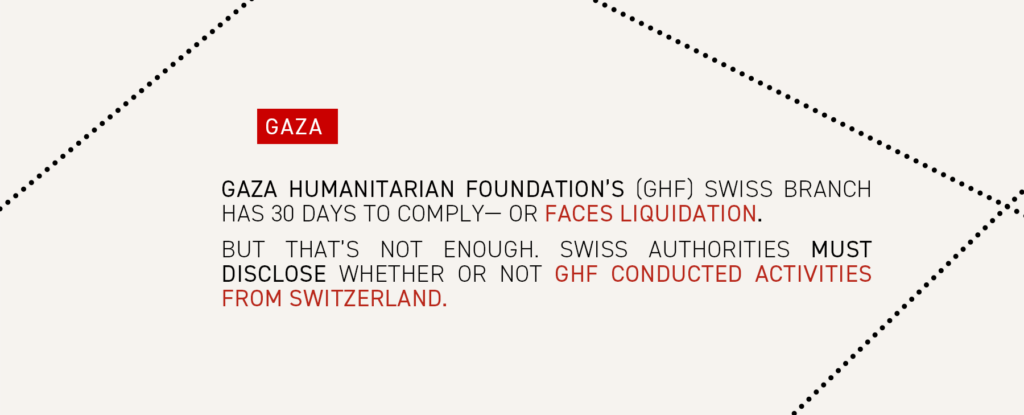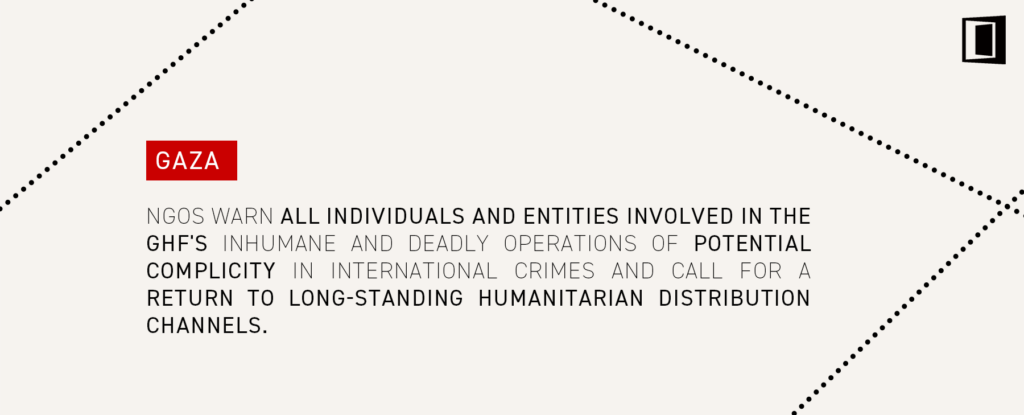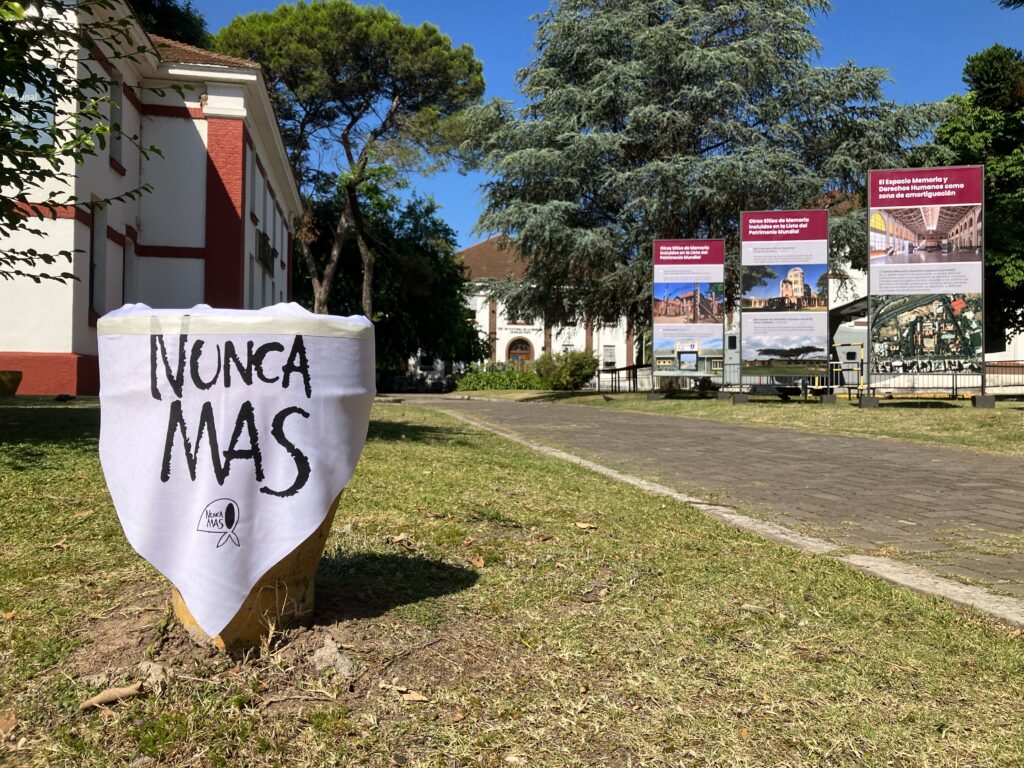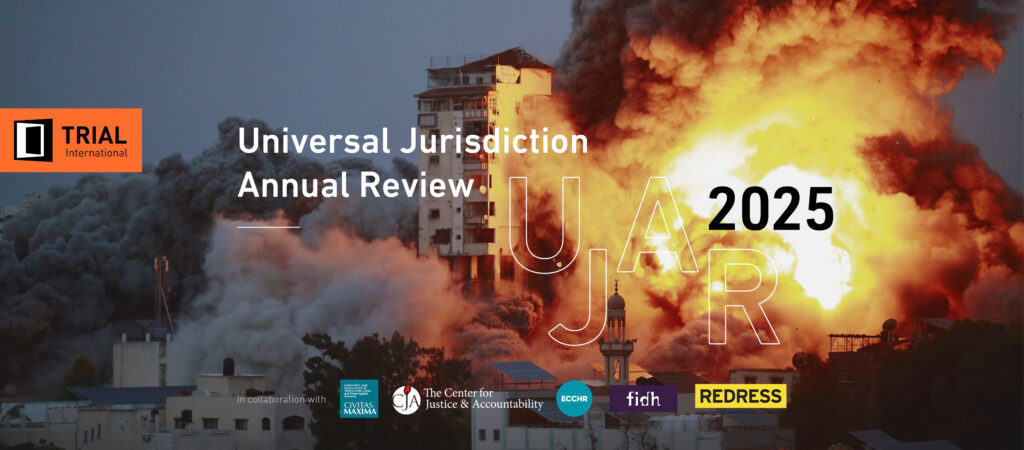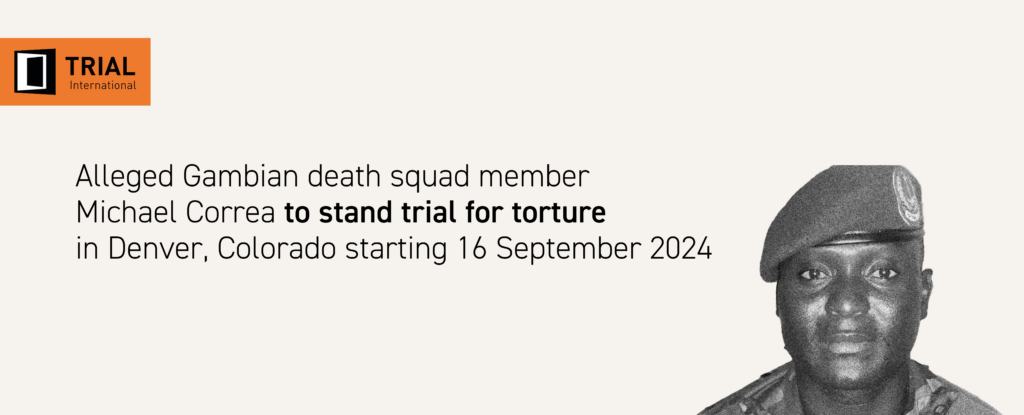Universal jurisdiction: why international crimes must not be prosecuted as terrorism
An op-ed by Valerie Paulet
The fight against terrorism has become a political priority for many governments, and prosecutions for terrorism are on the rise. But what exactly do charges for “terrorism” encompass? More importantly, what do they leave out? The 2020 Universal Jurisdiction Annual Review (UJAR) takes a close look at this potentially harmful evolution.

Paris, 5 December 2019. Mounir Diawara and Rodrigue Quenum are found guilty of participation in a terrorist organization and sentenced to 10 years’ imprisonment. Both accused had appeared in photos taken in Syria; one of them was brandishing a severed head.
A victory for the fight against impunity for the worst crimes? Not quite. Diawara and Quenum were brought to court on charges of terrorism, and not international crimes. What is in appearance a procedural detail actually reflects a deep – and alarming – legal trend which bears multiple consequences.
Read the full Universal Jurisdiction Annual Review 2020
Terrorism and international crimes, same difference?
War crimes, crimes against humanity and genocide – known collectively as international crimes – share common features with terrorism. Yet proving terror charges is remarkably straightforward compared to prosecuting international crimes. Convictions for membership to a terrorist organization, for instance, have been secured by as few elements as a connection with a known terrorist, or traveling to a zone controlled by that terrorist organization.
As a result, States have increasingly prosecuted suspects under terrorism changes rather than international crimes. In the present context of scarce resources, it is a zero-sum game: prosecutions for terrorism multiply at the expense of prosecutions for international crimes. A pragmatic choice, but there is a but.
Prosecuting terrorism is not the only way to combat impunity
The first shortcoming of terrorism is that it does not have a single, internationally recognized definition. Contrary to genocide, torture, enforced disappearance or war crimes, no international treaty circumscribes terrorism clearly. Each State has come up with its own definition, often influenced by current affairs and public opinion.
Moreover, prosecuting suspects using terrorism charges is sometimes presented as the only way of combatting impunity. But charges of terrorism do not encompass the full scope of human rights violations entailed in international definitions of war crimes, crimes against humanity or genocide.
For instance, the targeting of a particular ethnic group, such as Yazidi populations in ISIS-controlled territory, is not punished by terrorism charges per se. In the aforementioned case, Diawara and Quenum could also have been charged with the war crime of outrages upon personal dignity – clearly defined by the Geneva Conventions – but that opportunity was lost, as they were charged for crimes of terrorism.
Read about other major cases of 2019
Human rights protection in jeopardy
In the longer run, omitting charges of international crimes weakens the very protection provided by international criminal law. By ratifying conventions against genocide, war crimes and the like, States agree to abide by the highest standards of protection against mass atrocities. Resorting to terror charges – domestically defined without any sort of international consensus – they turn their backs on international norms built collaboratively over decades.
Universal jurisdiction itself is a byproduct of this joint endeavor and thousands of people have reaped its benefits. Must the short-term “efficiency” of terror charges sweep aside this precious common legal heritage?
Valérie Paulet is a Legal Advisor on universal jurisdiction and the author of the UJAR.
Follow on Twitter: @valeriepaulet
Read our latest Universal Jurisdiction Annual Review
Support the fight against impunity by making a donation today

